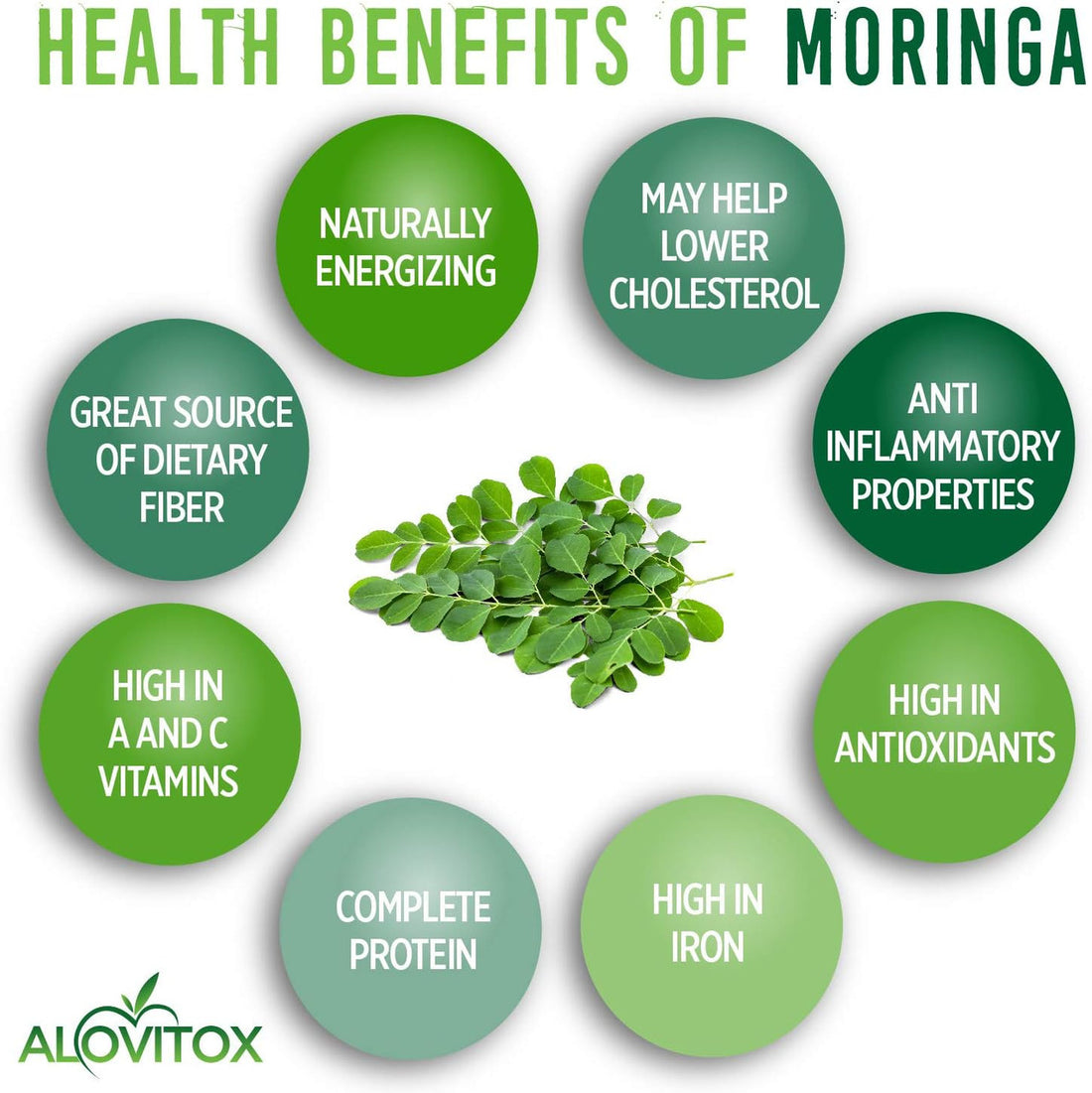The role of nutrition in achieving optimal fitness and athletic performance is widely acknowledged. In the vast array of natural supplements purporting to boost endurance and accelerate recovery, Moringa Oleifera stands out as a superfood with scientifically supported benefits. Referred to as the "Miracle Tree," Moringa is not only a nutritional powerhouse but also a catalyst for enhancing exercise performance and accelerating muscle recovery. This article aims to explore the relationship between Moringa and physical activity, shedding light on the ways in which incorporating this superfood into one's regimen can elevate athletic prowess. By exploring the synergies between Moringa and physical activity, we seek to provide an in-depth understanding of the benefits of this plant and the ways in which it can contribute to improved athletic performance.
Moringa: A Natural Ally for Athletes
Nutritional Foundation for Enhanced Performance
Moringa leaves are a powerhouse of essential nutrients, including vitamins A, B1, B2, B3, B6, C, and E, minerals such as calcium, iron, potassium, and magnesium, and all nine essential amino acids. This comprehensive nutritional profile provides a solid foundation for enhanced performance as it supports increased energy levels and endurance. Moreover, Moringa has natural anti-inflammatory properties, such as isothiocyanates, that help to reduce muscle inflammation and soreness, facilitating quick recovery post-exercise.
Boosting Endurance and Stamina
Moringa's high iron content plays a significant role in enhancing the delivery of oxygen to muscles, which improves endurance and stamina during prolonged physical activity. Iron is an essential component of hemoglobin, a protein in red blood cells that carries oxygen from the lungs to other parts of the body. A lack of iron can lead to fatigue, weakness, and reduced endurance. However, Moringa's high iron content helps to ensure that the body has enough oxygen to fuel the muscles during exercise.
Moreover, Moringa is an excellent source of vitamins B1, B2, and B3, which play a crucial role in energy production. These vitamins help to convert food into energy that the body can use, ensuring sustained energy levels throughout workouts. Vitamin B1 (thiamine) helps the body convert carbohydrates into energy, vitamin B2 (riboflavin) helps the body break down fats and protein, and vitamin B3 (niacin) helps the body produce energy from glucose. By optimizing energy production from food, Moringa can help athletes and fitness enthusiasts to perform at their best.
Moringa's Role in Muscle Recovery and Strength Building
Accelerating Recovery Processes
Moringa is a nutrient-dense plant that offers several benefits for athletes and fitness enthusiasts. The plant has antioxidants like Vitamin C and beta-carotene that help reduce oxidative stress caused by intense workouts. This, in turn, aids in the quick recovery of muscle tissues.
Moringa's complete amino acid profile, including branched-chain amino acids (BCAAs), promotes muscle protein synthesis. BCAAs are crucial for strength building and recovery, and Moringa's rich amino acid profile makes it an ideal supplement for athletes. Additionally, the plant is also rich in iron, which helps transport oxygen to the muscles, further aiding in recovery.
Supporting Joint Health and Mobility
Moringa's calcium and magnesium content contributes to stronger bones, which in turn supports joint health and reduces the risk of exercise-related injuries. Calcium is essential for strong bones and teeth, while magnesium helps the body absorb calcium and contributes to bone health.
Moringa also has anti-inflammatory effects that help maintain joint flexibility and mobility. The plant contains compounds that reduce inflammation, which is a common cause of joint pain and stiffness. Regular consumption of Moringa can help athletes maintain joint health and mobility, essential for a wide range of athletic activities.
Research Insights: Moringa's Efficacy in Exercise Performance
Scientific studies and clinical trials have provided valuable insights into the potential benefits of Moringa supplementation for exercise performance and recovery.
Animal studies have demonstrated that Moringa supplementation can improve endurance and reduce fatigue. These findings have provided preclinical evidence for the efficacy of Moringa in humans.
Preliminary clinical trials in athletes and fitness enthusiasts have shown promising results. Moringa has been found to enhance exercise performance and recovery by reducing muscle damage and inflammation. Additionally, Moringa's antioxidant properties may help to protect against oxidative stress, which can contribute to muscle fatigue and damage.

